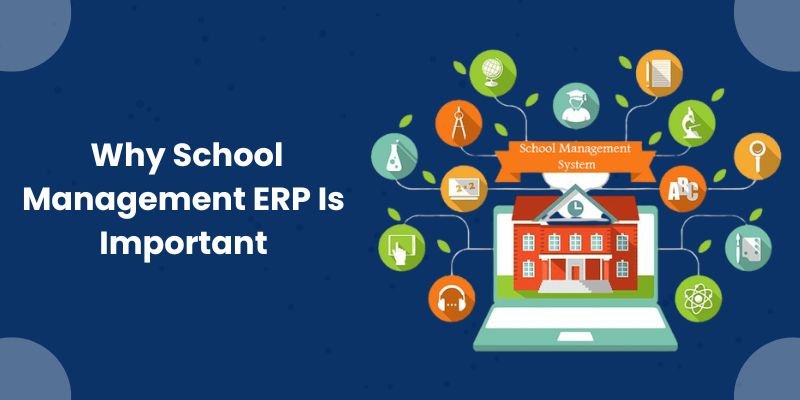Imagine a school where everything runs like a well-oiled machine -administrative tasks are a breeze, parents get real-time updates on their child’s progress, and teachers can dedicate more time to what they love: teaching. This isn’t just a dream; it’s the reality for schools that are using School Management ERP systems. These innovative solutions take school administration to the next level by bringing together various functions into one streamlined platform. From managing finances to tracking student performance, ERP systems are revolutionizing how schools operate, making education more effective and accessible for everyone involved.
Key Reasons Highlighting the Importance of School Management ERP
1. Centralized Data Management
With a School Management ERP, all your data is stored in one place, making it super easy to access student records, faculty information, attendance logs, and academic performance. Schools can quickly retrieve and update information in real-time, cutting down on redundancy and getting rid of all that paperwork.
2. Automation of Administrative Tasks
Let’s face it—manual administrative tasks can eat up a lot of time and resources. An ERP system automates routine jobs like fee collection, attendance tracking, and report generation, freeing up school staff to concentrate on what really matters: educating students.
3. Enhanced Communication Between Stakeholders
A solid ERP system promotes smooth communication among students, teachers, parents, and administrators. With features like automated notifications, emails, and messaging systems, everyone stays in the loop with timely updates on academic progress, attendance, and important events.
4. Improved Financial Management
Managing school finances—like fee collection, payroll, and budgeting—can be tricky. ERP solutions bring clarity and precision by automating transactions, generating financial reports, and ensuring everything complies with financial regulations.
5. Efficient Student Information Tracking
Keeping tabs on student progress is key to their academic success. ERP systems do a great job of maintaining records for attendance, grades, assignments, and behavior reports, giving educators valuable insights into how students are performing and where they might need a little extra help.
6. Streamlined Admission Processes
The admissions process can often feel like a long, drawn-out affair filled with potential mistakes. An ERP system makes things easier by digitizing application forms, automating the verification of documents, and handling online payments, which all contribute to a smoother and more efficient admissions experience.
7. Effective Timetable and Scheduling
Manually creating and managing timetables can be a real chore. ERP software takes the hassle out of scheduling by factoring in teacher availability, classroom capacity, and student preferences, ensuring that everything runs smoothly without any conflicts.
8. Comprehensive Examination and Assessment Management
ERP systems make it easy to handle online assessments, generate results, and distribute grades. Teachers can conduct exams, analyze how students are doing, and provide instant feedback—all through a single integrated platform.
9. Better Resource and Inventory Management
Schools need to manage resources like books, labs, and transportation effectively. ERP solutions help track inventory, schedule resource usage, and reduce waste, ensuring that everything is used to its fullest potential.
10. Data-Driven Decision Making
With an ERP system, school administrators gain access to real-time analytics and reports, allowing them to make informed decisions based on solid data insights. This leads to better academic planning, smarter resource allocation, and overall growth for the institution.
